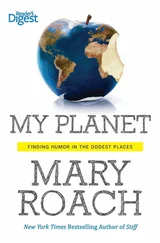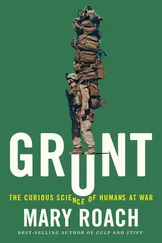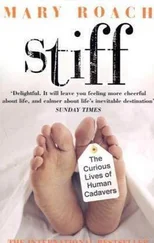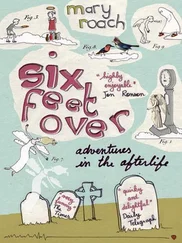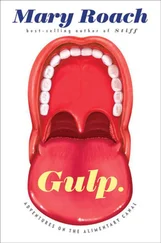Another reason to see how would-be astronauts handle stress is that options for reducing it are limited on board a spaceship. “Shopping, let’s say,” says Tachibana. “You cannot do such a thing.” Or drinking. “Or a long bath,” adds Kumiko Tanabe, who handles press and publicity for JAXA and thus, I suspect, takes lots of long baths.
LUNCH HAS ARRIVED, and all ten candidates get up to unpack the containers and set out plates. They sit down again, but no one picks up chopsticks. You can tell they’re strategizing. Does taking the first bite show leadership, or does it suggest impatience and self-indulgence? Applicant A, the physician, comes up with what seems an ideal solution. “ Bon appétit ,” he says to the group. He picks up his chopsticks as the others do, but then waits for someone else to take the first bite. Canny. I’ve got my money on A.
Here’s the other thing that’s changed since the heyday of space exploration. Crews aboard space shuttles and orbiting science labs are two or three times the size of Mercury, Gemini, and Apollo crews, and the missions span weeks or months, not days. This makes the Mercury-era “right stuff” the wrong stuff. Astronauts have to be people who play well with others. NASA’s recommended astronaut attribute list includes an Ability to Relate to Others with Sensitivity, Regard, and Empathy. Adaptability, Flexibility, Fairness. Sense of Humor. An Ability to Form Stable and Quality Interpersonal Relationships. Today’s space agency doesn’t want guts and swagger. They want Richard Gere in Nights in Rodanthe . [3] It was a ten-hour flight to Tokyo.
Assertiveness has to be “Appropriate” and Risk-Taking Behavior has to be “Healthy.” The right stuff is no longer bravado, aggressiveness, and virility. Or as Patricia Santy, NASA’s first staff psychiatrist, put it in Choosing the Right Stuff , “narcissism, arrogance, and interpersonal insensitivity.” “Who,” she asks, “would want to work with a person like that?”
As a gross overgeneralization, the Japanese are well suited to life on a space station. They’re accustomed to small spaces and limited privacy. They’re a lighter, more compact payload than the average American. Perhaps most important, they’re raised to be polite and to keep their emotions in check. My interpreter, Sayuri, a woman so considerate she wipes the lipstick off the edge of her teacup before handing it to the JAXA cafeteria dishwashers, says her parents used to tell her, “Don’t make waves on the quiet surface of the pond.” Being an astronaut, she noted, is “an extension of everyday life.” “They make excellent astronauts,” agreed Space Shuttle crew member Roger Crouch, whom I had been emailing during my stay in Japan.
I ran my theory by Tachibana. We had gone down to the lobby to chat. We sat on low sofas arranged beneath portraits of the JAXA astronaut corps. “What you say is true,” he said, one knee bobbing up and down. (His boss told me when I’d visited earlier in the year that leg-bobbing is viewed as a red flag during astronaut selection interviews, along with failure to make eye contact. For the remainder of the conversation, the boss and I stared intently at each other across the table, both refusing to look away.) “We Japanese have a tendency to suppress emotion and try to cooperate, try to adapt, too much. I worry that some of our astronauts behave too much well.” Suppressing one’s feelings too tightly for too long takes a toll. You either explode or implode. “Most Japanese will become depressive rather than explosive,” says Tachibana. Fortunately, he adds, JAXA astronauts train with NASA astronauts for several years, and during those years “their character becomes somewhat more aggressive and like Americans.”
In the previous isolation-chamber test, one applicant was eliminated because he expressed too much irritation and another because he was unable to express his irritation and acted it out passively. Tachibana and Inoue look for applicants who manage to achieve a balance. NASA astronaut Peggy Whitson strikes me as a good example. On NASA TV recently, I heard someone at NASA tell her that he could not find a series of photographs that she or some member of her crew had recently taken. If I’d spent the morning shooting photographs and the person I’d shot them for then misplaced them, I’d say, “Look again, lamb chop.” Whitson said, without a trace of irritation, “That’s not a problem. We can do them over.”
Anything else to avoid should you wish to become an astronaut?
Snoring, says Tachibana. If it’s loud enough, it can mean elimination from the selection process. “It wakes people up.”
According to the Yangtse Evening Post, the medical screening for Chinese astronauts excludes candidates with bad breath. Not because it might suggest gum disease, but because, in the words of health screening official Shi Bing Bing, “the bad smell would affect their fellow colleagues in a narrow space.”
LUNCH IS OVER, and two—now three, wait, four!—of the candidates are cleaning the surface of the table. I’m reminded of those brushless car washes where a small army of wiping employees descends on your vehicle as it exits the wash. But no one has to clean the dishes. The instructions are to put your dirty plates and utensils back inside the plastic tub labeled with your I.D. letter, and to put the tubs in the “airlock.” What the candidates don’t know is that the dirty dishes are then loaded onto a dolly and wheeled away to be photographed. The photos will be delivered to the psychiatrists and psychologists, along with the origami birds. I watched the photo shoot after last night’s meal. The photographer’s assistant opens each tub and holds a piece of cardboard printed with the candidate’s letter and the date just inside the bottom of the frame, as though the place setting had been picked up for a crime and was now being posed for a mug shot.
Inoue was vague about the purpose. To see what they ate, he said. For what it’s worth, C didn’t eat her chicken skin, and G left the seaweed in his miso soup. E left half his soup and all his pickled vegetables. My man A ate everything and placed it back in the container in the same precise configuration in which it had arrived.
“Look at G-san,” tutted the photographer. (“San” is a Japanese honorific, like our “Mr.” or “Ms.”) He lifted the pickle dish that G had placed on top of the dinner plate. “He’s hiding his skin.”
I’m not sure I understand why it’s important that astronauts clean their plates and stack their dirty dishes. Tidiness is certainly important in a small space, but I think this is about something else. If I showed a stranger a list of the activities I’ve been observing these past few days and asked him to guess where I’d been, I doubt “space agency” would leap to mind. “Grade school” might. In addition to origami, the tests this week have involved building LEGO robots and making colored-pencil drawings of “Me and My Colleagues” (also destined for the mental health professionals’ in-boxes).
Right now, H is on the TV screens, addressing his colleagues and the cameras. The activity is called “self-merits presentation.” I had expected something along the lines of a one-way job interview, a recitation of character strengths and job skills. This is more like a summer camp talent show act. C’s talent was singing songs in four languages. D did forty push-ups in thirty seconds.
Adding to the overall schoolyard ambiance, the candidates wear pinnies. They’re the sort of thing kids used to wear during gym class to help them keep track of who’s on what team. These have candidates’ letters printed on them. They are for the observers. The lighting is poor and the camera rarely zooms in on faces, so it’s hard to figure out who’s talking. Before the pinnies went on, everyone was constantly leaning over and whispering to their neighbor. “Who’s that? E-san?” “I think it’s J-san.” “No, J-san is there, with the stripes.”
Читать дальше

